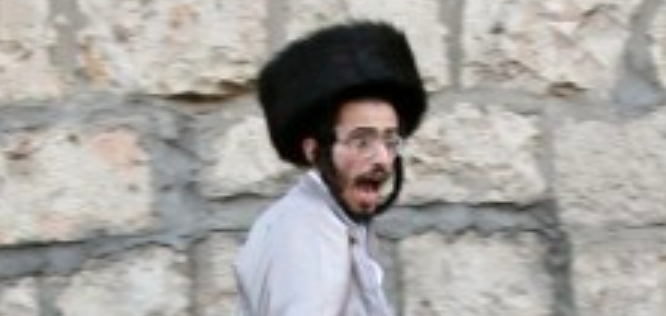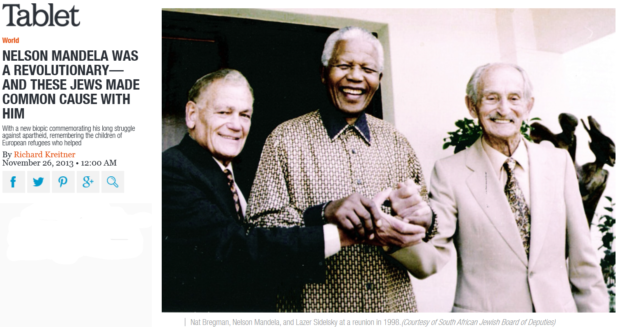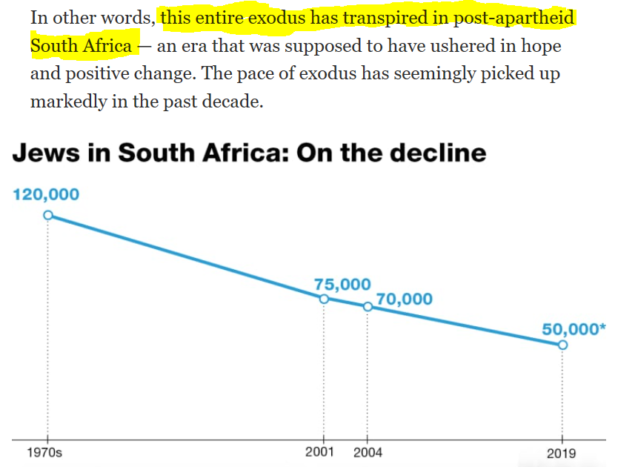Frei
Daily Stormer
June 17, 2019
Jews were heavily involved in the movement to bring an end to white rule in South Africa.
But don’t take the Daily Stormer’s word for it. Hear it from the Jews themselves.
In 1963, after South African police arrested six Jews and seven blacks in a raid on an African National Congress hideout in the Johannesburg suburb of Rivonia—a sweep that eventually landed Nelson Mandela in prison for more than 25 years—a white nationalist newspaper asked whether Jews were unhappy in South Africa. The community’s Board of Deputies responded unequivocally that the opposite was true, promising that South Africa’s Jews were loyal and patriotic. “No part of the community can or should be asked to accept responsibility” for the actions of a few, the board insisted in its official reply.
In time, of course, Mandela became a hero, and the actions of those few became a point of pride for South African Jews. Beginning with his years at Johannesburg’s more or less integrated University of the Witwatersrand—aka “Wits”—and later as an apprentice to a Jewish law firm, Nelson Mandela had a political life that was profoundly intertwined with those of Jewish activists who, to varying degrees, found in their Jewish identity the imperative to object to a system that, while almost completely welcoming to them, treated blacks in a way that many of these children of European refugees found discomfitingly familiar.
While most South Africa Jews took the silent, implicitly conservative position of the Board of Deputies, the great majority of white South Africans involved in “the struggle” were Jewish. Many were Communists. Most were lawyers. A few had money. But all faced what has been described as a “double marginality”: not fully accepted as white, while also alienated from an organized Jewish community beholden to the powers that be.
That so many Jews surrendered the comforts of their own relatively privileged lives—indeed, in at least one case, surrendered life itself—to join Mandela and the ANC, though they had little material stake relative to their black comrades, is in itself a testament to the radical legacy these Jews brought with them out of Europe to the other end of the globe.
But now that the Jews have achieved their objective, and the country has been ruined with black rule, it seems they don’t want to stick around to enjoy the new “Rainbow Nation.”
If South African Jews feel compelled to uproot themselves, Jewish community leaders console themselves in the fact that many are going to Israel. “For us, that’s a positive thing,” says Wendy Kahn, national director of the South African Jewish Board of Deputies.
Geoff Cohen, the educational director of Herzlia, the leading Jewish day school in Cape Town, says his students are sent off with the following message: “If you’re not going to stay home, then go home.”
And that is what Jewish lawmaker Michael Bagraim is advising his own children. “I go to lots of Shabbat dinner tables, so I know what people are talking about,” says the Democratic Alliance MP — one of four Jews to serve in the current parliament. “They are extremely worried. Everyone is encouraging their children to leave. I’m encouraging mine as well. And yet I’m a proud South African. I don’t want to leave ever. But I know that if I have to run — and I’ve always got a bag packed — I’ll run to Israel.”
Of interest, first of all, is that 4 out of the 400 MPs in South Africa are Jews, 1% of the total. The population of South Africa overall is 57 million. The Jewish population is 50,000, less than 0.1%. So Jews are overrepresented in the South African Parliament by a factor of more than 10. Secondly, these Jews, who debate and decide the country’s future, nonetheless have no deep-rooted commitment to it. They advise their children to leave and keep a suitcase permanently packed, ready to jump on a plane at a moment’s notice. Will this outlook not affect the deliberations they make? Of course it will. And this is true for elected Jewish representatives around the world. To them, a country is just a hotel. Except one, of course.
Think how many back-to-the-wall moments throughout history there have been – Greeks versus Persians, for example – where the absolute, unshakable commitment of a people to defend its own land made a difference to the outcome. If you have Jews in your deliberative body, that commitment just isn’t going to be there.
The same pernicious pattern we see in South Africa recurs throughout history. Jews enter a country, consolidate their power in it, then begin pursuing some process of destructive change, calling it Tikkun Olam (“Healing the world”). Anyone who opposes the destructive change or points out the Jewish role in it is accused of “antisemitism.” In the end, the destructive change is achieved and the country is healed ruined. Jews may enjoy some temporary privileged status as a result of riding so high on the wave of destruction. But soon their privilege is resented, the fact that the country is now ruined comes to general notice and affects the Jews themselves, and, of course, the role the Jews played in bringing that ruin about cannot fail to be perceived. Time to grab that suitcase and move on. Find a new host. Pattern repeats. (And once they’ve found their new host, the Jews will write books vilifying the people in the country they just left, accusing them of antisemitism for having attempted to forestall the ruin the Jews were intent on bringing upon them.)
Why do Jews do it? Can’t they stop themselves? It’s not good for them; it’s not good for the goyim. But even when they enjoy comfortable and privileged lives, they somehow feel impelled to act as an entropic force, dissolving the structural bonds of whatever society they live in.
For too many Jews, the tragic truth is: No, they can’t help it. It’s their nature. It reminds me of the parable of the Scorpion and the Fox, memorably told by Chakotay in the Star Trek: Voyager episode “Scorpion,” as the humans debated whether they could have a mutually beneficial relationship with the Borg.
Where will the Jews go, after they have ruined the West? Will the Chinks let them in?


